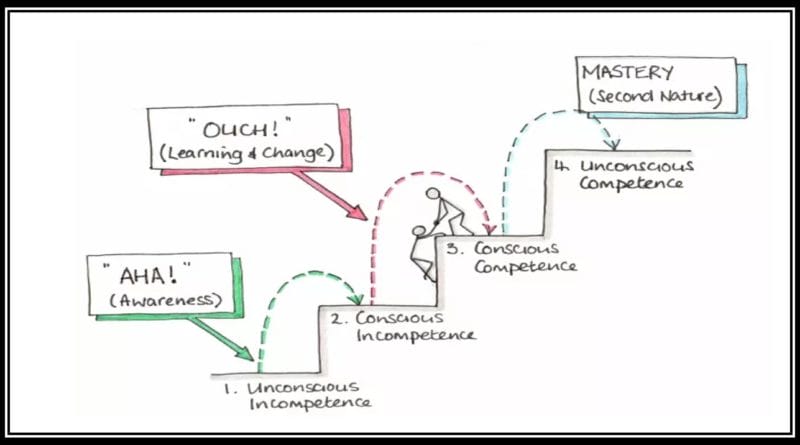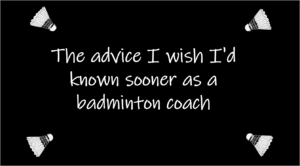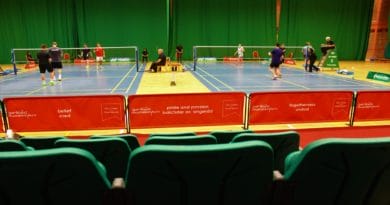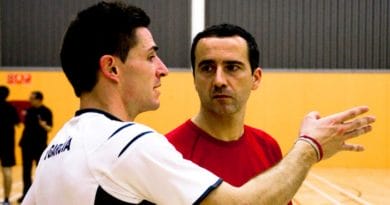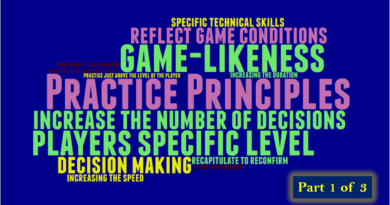5. Coaching to ‘Forget’
.. by not drawing attention to technical aspects once part established
.. develop ‘players’, not technical experts who ‘know’ as much as you do
.. the goal is to develop performers who compete in games, not to create ‘mini-coaches’
Many years ago I watched my mentor coach at work with a very good young player. I was surprised by how little information he gave about grips, when to split, how to move, etc.
I was confused. Surely he must tell them more about what to do and how to do it! – Oh, how I was wrong!
I also noticed that he rarely spoke during the rallies, apart from grunting (to fake effort) when he tried to move to their “good shots” 🙂 This happened against 13 yr olds as well as 19 yr olds 🙂 🙂
I’m sure that sometimes this perceived effort on his part was false in order to show the player that their efforts were successful against a player of their standard.
After a few years, I realised he was “Coaching players to forget”
I’m not sure if that is a Sports Science term, but it’s my term and one that I keep in mind when coaching.
It helps me consider what type of information/instruction I should include. More importantly, it also acts to remind me that maybe there will come a time in the performer’s development when I stop saying the critical things I had been doing previously.
Reducing (eg no longer talking about) the amount of previously critical information can be a difficult challenge for me.
It was even more challenging when years later I spoke with one of my players about one of their accomplished skills/techniques and they said “I don’t think you ever taught me that, well I can’t remember!”
I thought (incorrectly) that it was important to ensure that good players understood exactly what to do and when to do it
(some things yes, others no)
I’d previously been reinforcing ‘essential’ technical tips, often shouting out loud during the rallies.
I thought I needed my players to understand the technical elements 🙁
I also believed that by often reinforcing and checking technical elements through questioning would help the players 🙁
I was advised to “allow the players to play”,
“they don’t need to always know, but they must be able to play”,
Coach to Forget!
Roger did draw the player’s attention to these aspects;
- the things they could see over the net
- where space was on the court (their side & the opponents’ side)
- what were the opponents’ most likely replies
- how could they make it tough for the opponent
All the coaching (talking) was done in between rallies
He ‘coached’ in the rallies by returning the shuttle and by allowing the players to play
Nowadays I realise that in order to Coach to Forget ….
- I believe once a skill is partly established and many of the initial cues are no longer required, I STOP talking about them
- I very rarely mention terms such as “basic grip”, “thumb Grip”. In fact, I deliberately try not to use these terms after the first few lessons, they perform the action so why tell (remind) them how they are achieving it!
- I don’t mention where the non-racket arm, feet, trunk, etc should be once I’ve seen that these aspects are generally in a good position and aren’t limiting the player
- I never mention the words “supination or pronation” or “kinetic chain”. These are coaches’ words and how do they help performance or stress opponents?
- I never call out “split” or clap my hands to encourage a split. When I have it never really helped, if fact it probably hindered the moment!
- I don’t reinforce technical aspects once partly established if the outcome is close to the ‘model’. Close but not having to be ‘perfect’
- I encourage players to imagine the outcome they want and how to prepare for that. Their thoughts are more important than my words.
- I use the rally situations to test the robustness of the technique without telling the player. Using play as a ‘test’ and not a prescribed isolated test from a manual is preferred.
- If they (the players) ask “how is my technique ?“, I’m careful with my reply. Often talking about the performance outcome and the effect on the opponent.
- When reviewing for the purpose of reinforcement, I’m careful over the questions I ask and allow the player to describe in whatever way they choose. It shouldn’t have to sound like a coach’s reply!
- I want to coach to forget, I mean I want my players to perform rather than know the mechanics of how and why they perform as well as they do.
- I’m happy if they can’t describe the technical parts of what they do 🙂
Where would you position the effect of ‘coaching to forget’

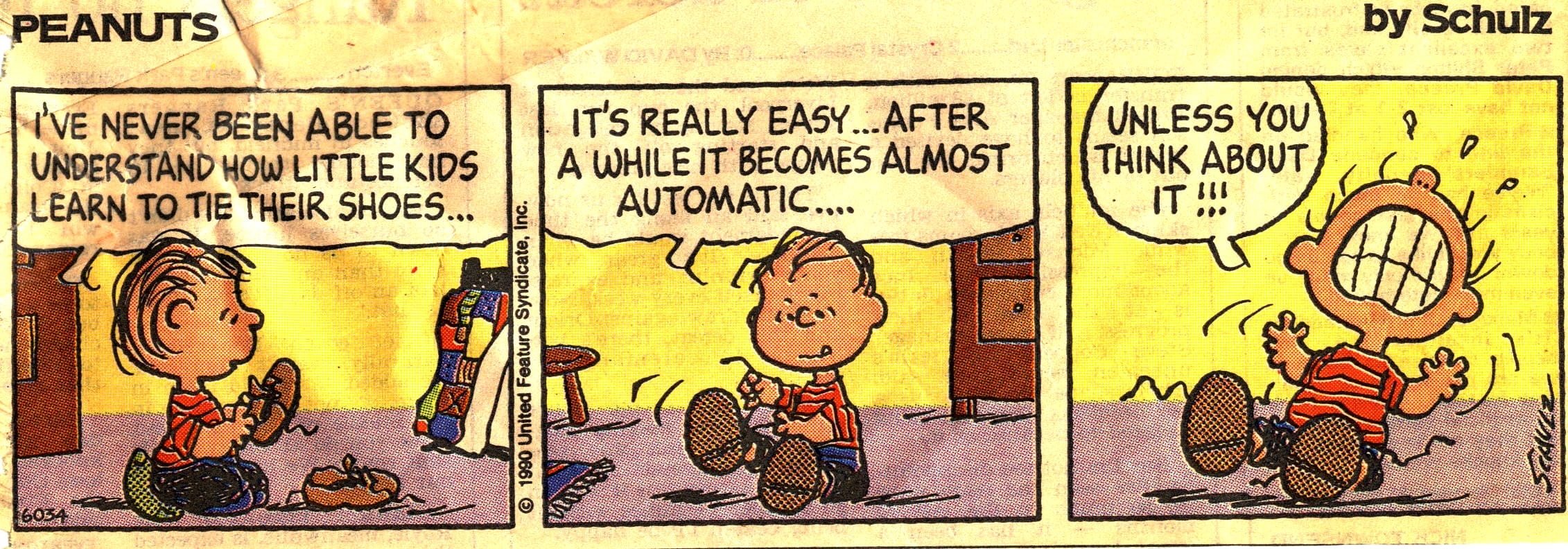
I realised that I had made progress when one of my players was asked (by anoth coach) what grip she used to cross-court from her low backhand net –
“one that makes it go up and over” was the reply 🙂
How important is it that your players can repeat all the important technical information of a ‘perfect’ performance?
especially those related to body movements within complex movements

